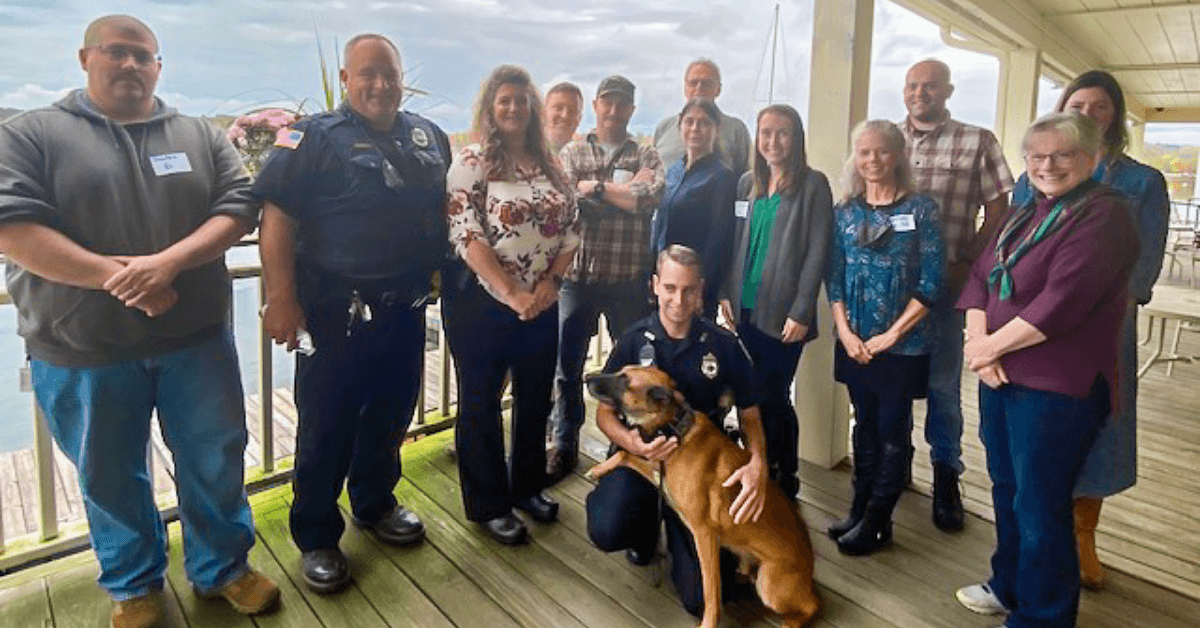NEWPORT — Law enforcement officers in Essex and Orleans counties took part in two four-hour workshops to learn about a “trauma-informed” approach to interacting with children who are present when a parent or caretaker is being arrested.
Studies have shown that children who were present when their parents were arrested often carry with them long-lasting trauma from that experience.
Recognizing that officers present during the arrest can either exacerbate or mitigate that trauma, the workshops, which took place in October, were designed with two overarching goals.
First is to help law enforcement officers understand the factors that contribute to children’s trauma, and second, to offer approaches and strategies for ensuring that the trauma experienced by children is minimized as much as possible and that they receive necessary follow-up supports and services.
By all accounts, these workshops were notable not just for their content, but also because of the collaborative spirit in which they were designed, organized, and implemented.
Resilience Beyond Incarceration, a program of the Lamoille Restorative Center, supports the efforts of community teams across Vermont to improve outcomes for children with parents who are incarcerated.
The Newport community team, led by Barbara Morrow, Executive Director of the Northeast Kingdom Restorative Justice Center, and Samantha Stevens, Equity & Community Outreach Coordinator for North Country Supervisory Union, had identified offering training for their law enforcement officers as a high priority, along with better coordination between law enforcement, schools, and community agencies to support youth.
The team then approached Orleans County Sheriff Jennifer Harlow, who has been promoting a trauma-informed approach to working with children in Vermont for years.
She pulled in Travis Bingham, the Newport Chief of Police, who also wholeheartedly supported the workshops.
Both Sheriff Harlow and Chief Bingham required that all officers from their agencies participate.
In addition, several school resource officers and three representatives from the state’s attorney’s office attended, bringing the total for the day to close to 40.
Both Harlow and Bingham found the discussion about “Adverse Childhood Experiences” that contribute to children’s trauma particularly helpful to their officers, most of whom had not been previously exposed to this information.
Like almost every other state, Vermont’s police academy training does not include instruction in adolescent psychology or behavioral effects of trauma.
Chief Bingham explained that many of the officers under him are parents, and instinctively practice many of the strategies endorsed in the workshop, but that it was very helpful to understand the research behind trauma-informed practices.
The next step, many agreed, is to codify the training through the creation of new policies that specifically detail how officers should treat children during a parent’s arrest.
Harlow said she would also like to see this curriculum become incorporated into the state’s Academy training, where she is an instructor.
Stevens and Morrow also stressed the importance of strengthening partnerships between law enforcement, schools, and community groups, and have secured a state grant to bring police officers into the schools to serve as mentors, tutors, and coaches.








